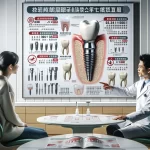Are you among the many Medicare beneficiaries finding it difficult to understand dental coverage? You’re not alone! Many seniors find themselves confused about what’s included under their plans and what they might need to pay out-of-pocket. This comprehensive guide clarifies the dental services covered by Medicare, highlights the limitations of Original Medicare, and explores options for more comprehensive dental benefits, ensuring you maintain optimal oral health during retirement.
Understanding the Challenge: Limited Dental Coverage with Original Medicare
Original Medicare, consisting of Part A (hospital insurance) and Part B (medical insurance), offers notably limited dental coverage. Unfortunately, the majority of routine and preventive dental care—essential for maintaining good oral health—is not covered . This gap in coverage affects a significant portion of Medicare recipients, creating challenges in affording necessary dental care.
Commonly Excluded Dental Services: What Original Medicare Doesn’t Cover
Original Medicare typically doesn’t cover the following dental services :
- Routine dental exams and cleanings
- X-rays
- Fillings
- Tooth extractions
- Dentures (both complete and partial)
Due to these limitations, a substantial number of Medicare beneficiaries lack adequate dental coverage . This can unfortunately make it difficult to afford essential dental treatments . The result of this lack of coverage can lead to poor oral health, chronic pain, and malnutrition .
The Impact of Limited Coverage: A Real-Life Perspective
“I was shocked to find out that my Original Medicare didn’t cover routine dental cleanings,” says Mary S., a 72-year-old Medicare beneficiary. “I ended up paying out-of-pocket for basic dental care, which strained my budget.” Stories like Mary’s highlight the critical need for better understanding and access to dental coverage for seniors.
Exceptions: Dental Services That May Be Covered by Medicare
While Original Medicare generally excludes routine dental work, certain exceptions exist for dental services considered medically necessary . In specific situations where dental health is inextricably linked to a covered medical procedure, Medicare Parts A and B may offer coverage .
Medically Necessary Dental Services
Hospitalized Dental Services: Medicare Part A may cover certain dental services if hospitalization is required for a medical emergency or complex procedure . For instance:
- Tooth extractions performed before radiation treatment for jaw-related cancers .
- Oral examinations needed before kidney transplants or heart valve replacement surgeries to mitigate potential risks .
- Jaw reconstruction after facial tumor removal or dental splints when required after jaw surgery .
Note: While Medicare may cover these services during hospitalization, follow-up dental care post-discharge is generally not included, leaving the beneficiary responsible for the full cost.
Services Inextricably Linked to Covered Medical Procedures: Medicare Parts A and B may cover dental services essential for the clinical success of other covered medical procedures . Examples include:
- Dental or oral exams as part of a comprehensive evaluation before organ transplants, cardiac valve replacements, or valvuloplasty procedures .
- Medically necessary diagnostic and treatment services to eliminate oral or dental infections before chemotherapy, CAR T-cell therapy, or the administration of high-dose bone-modifying agents for cancer treatment .
- Treatment for dental complications following head and neck cancer treatments .
- Dental or oral examinations performed before dialysis services for end-stage renal disease (ESRD).
Other Covered Services:
- Ridge reconstruction during tumor removal.
- Stabilization or immobilization of teeth related to jaw fracture reduction.
- Dental splints as part of medically necessary treatment for conditions like dislocated jaw joints.
Navigating Alternatives: Options for More Comprehensive Dental Coverage
Given the clear limitations of Original Medicare, exploring alternative avenues for more comprehensive dental care becomes essential. Here’s an overview of available options:
Medicare Advantage Plans (Part C)
Medicare Advantage plans, also known as Part C, are offered by private insurance companies approved by Medicare . These plans consolidate Part A and Part B coverage, and many include additional benefits such as prescription drug coverage and, importantly, dental coverage .
Coverage Variability: Understanding Dental Benefits
Dental benefits under Medicare Advantage plans can vary significantly. Some plans may only cover basic services like cleanings and X-rays, while others offer more comprehensive coverage, including fillings, extractions, crowns, and dentures .
When selecting a Medicare Advantage plan, carefully evaluate the dental benefits to ensure they align with your specific needs and budget. Prioritize plans offering both preventive and comprehensive care .
Stand-Alone Dental Insurance Plans
Purchasing a separate, stand-alone dental insurance plan from a private insurer is another option to supplement Original Medicare coverage. These plans are available in various categories:
- Preventive Plans: Cover basic services such as exams and cleanings.
- Basic Plans: Include preventive services along with simple procedures like fillings.
- Comprehensive Plans: Provide broader coverage for more complex treatments like crowns, bridges, implants, and dentures.
When evaluating stand-alone plans, compare premiums, deductibles, copayments, and annual benefit maximums across different providers. Verify that the plan offers a wide network of participating dentists. Understanding the intricacies of dental insurance can be overwhelming, so consider exploring resources that offer guidance on how to get dental insurance.
Dental Savings Plans
For individuals seeking a cost-effective alternative to traditional insurance, dental savings plans can be an attractive option.
How Dental Savings Plans Work
With these plans, you pay an annual fee to gain access to a network of dentists who offer services at discounted rates. While these plans aren’t insurance policies and don’t directly cover fees, they can significantly lower overall dental costs .
Before enrolling in a dental savings plan, carefully review the fee schedules and participating dentists to ensure the plan meets your specific needs and preferences .
Maximizing Your Medicare Benefits for Dental Health: Step-by-Step
To fully leverage your Medicare benefits for dental health, here are some actionable strategies:
- Consult Official Resources: Begin by consulting the official Medicare website (Medicare.gov) for the most current and accurate information on covered dental services. This will provide a solid foundation for understanding your existing benefits.
- Review Medicare Advantage Plans: If you’re enrolled in a Medicare Advantage plan (Part C), carefully review the plan’s details regarding dental coverage. Pay close attention to the specific services covered, copayments, deductibles, and annual maximums.
- Communicate with Your Dentist: Maintain open communication with your dentist about your Medicare coverage. They can help you understand which services are likely to be covered and provide cost estimates for treatments.
- Explore Community Resources: Investigate local community health centers or dental schools that may offer low-cost dental care services to eligible individuals. These resources can provide affordable options for routine check-ups, cleanings, and basic treatments.
- Consider Supplemental Insurance: If Original Medicare doesn’t meet your dental needs, explore supplemental dental insurance plans or dental savings plans to enhance your coverage. Evaluate the costs and benefits of each option to determine the best fit for your budget and dental health requirements.
Medicare Dental Coverage: What’s New for 2025?
It’s essential to stay informed about recent regulatory actions that modify Medicare payment policies to expand the scope of covered dental services. In recent years, the Centers for Medicare & Medicaid Services (CMS) has implemented changes through Medicare Physician Fee Schedule Final Rules, reflecting a commitment to addressing gaps in dental coverage .
These changes include coverage for dental or oral examinations before organ transplant surgery, cardiac valve replacement, valvuloplasty procedures, and head and neck cancer treatment . Additionally, Medicare now covers treatment for dental complications arising after radiation, chemotherapy, and/or surgery for head and neck cancer .
Medicare Resources: Where to Find More Information
For additional guidance through the world of medical insurance, be sure to visit our Medicare hub or check out these resources:
- Medicare Official Website (Medicare.gov)
- Centers for Medicare & Medicaid Services (CMS.gov)
- American Dental Association (ADA.org)
The Connection Between Oral Health and Overall Well-being: More Than Just a Smile
Maintaining good oral health is not just about a bright smile; it’s an integral component of overall well-being. Research indicates strong connections between oral health and systemic conditions such as heart disease, diabetes, and respiratory infections .
How Oral Health Impacts Overall Health: Key Connections
- Heart Disease: Poor oral hygiene can lead to gum disease, increasing the risk of heart disease and stroke .
- Diabetes: Gum disease can make it more difficult to control blood sugar levels, exacerbating diabetes .
- Respiratory Infections: Bacteria from infected gums can be inhaled into the lungs, leading to pneumonia and other respiratory issues .
Financial Planning for Dental Care: Strategies to Consider
Given that Original Medicare provides limited dental coverage, financial planning for dental care is crucial for seniors. Consider these strategies to manage dental expenses effectively:
- Budgeting: Create a dedicated budget for dental care, including routine check-ups, cleanings, and potential treatments.
- Health Savings Accounts (HSAs): If eligible, contribute to a Health Savings Account (HSA) to save pre-tax dollars for healthcare expenses, including dental care.
- Payment Plans: Discuss payment options with your dentist’s office, as many offer installment plans to make treatments more affordable.
- Financial Assistance Programs: Explore financial assistance programs offered by dental schools, community clinics, or non-profit organizations in your area.
FAQ
- Does Medicare cover dental implants?
- Generally, Original Medicare does not cover dental implants. However, some Medicare Advantage plans may offer coverage.
- What if I need a tooth extraction?
- Original Medicare typically doesn’t cover routine tooth extractions, but it may cover extractions performed in a hospital setting for medically necessary reasons.
- Are dentures covered by Medicare?
- No, Original Medicare does not cover dentures.
Conclusion
Maintaining good oral health is vital for overall well-being ; however, Original Medicare falls short in providing adequate dental coverage for seniors . By understanding the limitations of your current coverage and exploring additional options—such as enrolling in a Medicare Advantage plan with dental benefits, purchasing stand-alone dental insurance, or considering a dental savings plan—you can take proactive steps toward ensuring your oral health in retirement.
Don’t let cost deter you from receiving essential dental care. Speak with your dentist and insurance provider today to explore your options and find an affordable plan that meets your needs. Take control of your oral health now—your smile deserves it!
Disclaimer: Please consult with a qualified healthcare professional or insurance advisor for personalized advice regarding your specific Medicare coverage and dental care needs. This article is intended for informational purposes only and does not constitute medical or financial advice.







